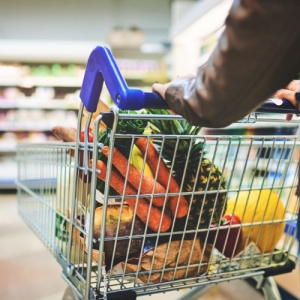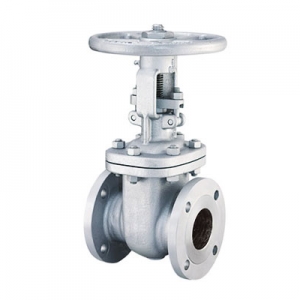If you want your retail business to thrive, working with the right wholesale food suppliers is non-negotiable. The truth is, your suppliers can either make your life smooth and profitable or turn your operations into a constant juggling act. So, let’s get straight to it: knowing how to evaluate suppliers effectively can save you time, money, and headaches.
Why Choosing the Right Wholesale Food Supplier Matters
Imagine running a café or grocery store where deliveries are late, products arrive damaged, or prices fluctuate unpredictably. Frustrating, right? These are real pain points that many retailers face when they overlook supplier evaluation. A reliable wholesale food supplier ensures consistency, quality, and timely deliveries, which translates into happy customers and steady revenue. In essence, your supplier is not just a vendor—they’re a partner in your success.
Step 1: Understanding Your Business Needs
Before you start evaluating suppliers, get crystal clear on your needs. Ask yourself: What types of food products do I sell most? How often do I require deliveries? What storage capabilities do I have? These questions help you narrow down suppliers who can actually meet your business requirements.
For instance, if you’re running a restaurant with high turnover of fresh produce, a supplier who specializes in frozen or packaged goods may not be the right fit.
Step 2: Assessing Product Quality
Quality is king when it comes to food. Check how suppliers source their products, their handling practices, and compliance with food safety standards. Remember, inferior quality can lead to customer complaints, waste, and loss of reputation.
Don’t just rely on brochures—request samples, inspect deliveries, and verify certifications. Think of it as dating before a commitment: you need to see their reliability firsthand before making a long-term arrangement.
Step 3: Evaluating Pricing and Cost Structures
Pricing can be tricky. It’s tempting to pick the lowest bidder, but cost isn’t just about the price tag. Consider shipping fees, minimum order quantities, and potential spoilage. A supplier that’s slightly more expensive but consistent in quality and delivery may save you money in the long run.
It’s like buying a high-quality tool—you pay more upfront but avoid frequent replacements and downtime.
Step 4: Checking Supplier Reliability
Consistency is everything. How often do they deliver late? Do they run out of stock unexpectedly? A supplier’s reliability affects your inventory management, customer satisfaction, and ultimately, your bottom line.
Ask for references or case studies from other retailers. Past performance often predicts future reliability, and a supplier who has a proven track record is worth its weight in gold.
Step 5: Understanding Delivery and Logistics Capabilities
Efficient logistics are crucial. Consider the supplier’s delivery schedules, transportation methods, and coverage areas. Can they handle emergency orders? Do they offer tracking and notifications?
Remember, a late delivery isn’t just inconvenient—it can mean lost sales and dissatisfied customers. A supplier with smooth logistics acts like an invisible safety net for your business.
Step 6: Evaluating Customer Support and Communication
A strong partnership relies on good communication. How quickly do they respond to queries or resolve issues? Are they transparent about delays or stock shortages? Excellent customer support can prevent small problems from snowballing into major operational disruptions.
Think of it as having a reliable co-pilot: they keep you informed, anticipate problems, and help navigate challenges.
Step 7: Considering Product Range and Flexibility
A supplier with a broad product range allows you to diversify your offerings without juggling multiple vendors. Flexibility is equally important—can they accommodate changes in order volume or special requests?
For example, seasonal fluctuations in demand or special promotions may require adjustments in your orders. Suppliers who can adapt quickly save you stress and lost revenue.
Step 8: Reviewing Certifications and Compliance
Food safety and regulatory compliance are non-negotiable. Ensure suppliers adhere to local regulations, possess necessary certifications, and maintain proper storage practices. Traceability of products and proper labeling is essential to avoid legal risks and maintain consumer trust.
Step 9: Assessing Technology and Ordering Systems
Modern suppliers often offer digital ordering platforms, apps, and automated inventory tracking. Leveraging these tools can save time, reduce errors, and improve efficiency.
Think of technology as a turbo boost: it helps you track inventory in real time, schedule orders intelligently, and analyze sales trends to optimize supply chains.
Step 10: Building Long-Term Relationships
Finally, look beyond transactions. Strong supplier relationships bring benefits like early access to new products, better payment terms, and priority during peak seasons. Regular communication, trust, and reliability turn a simple vendor into a strategic partner who grows with your business.
Conclusion
Evaluating wholesale food suppliers is more than comparing prices or checking delivery schedules. It’s about understanding your business needs, assessing quality and reliability, and building partnerships that support growth. A well-chosen supplier streamlines operations, reduces risk, and enhances customer satisfaction, ultimately contributing to your long-term success. Remember, the right supplier is an investment in the health of your business.
Elevate your retail game by sourcing smarter at thokmandee’s wholesale marketplace—where quality, variety, and efficiency come together for savvy retailers like you!
FAQs
- What should I prioritize when evaluating wholesale food suppliers?
Focus on product quality, reliability, delivery efficiency, and cost-effectiveness. A supplier who balances these factors is often the best choice. - How can I verify a supplier’s reliability?
Request references, review past performance, and check customer feedback. Consistent delivery records and responsive communication are key indicators. - Are online ordering platforms important?
Yes. Digital systems streamline orders, reduce mistakes, and help track inventory, making operations more efficient. - Should I only consider local suppliers?
Local suppliers often provide fresher products and faster deliveries, but international suppliers may offer specialty items. Balance your needs with logistics and pricing. - How can I maintain a strong relationship with a supplier?
Communicate regularly, honor agreements, provide feedback, and build trust. Strong relationships can lead to better deals, priority services, and strategic advantages.







